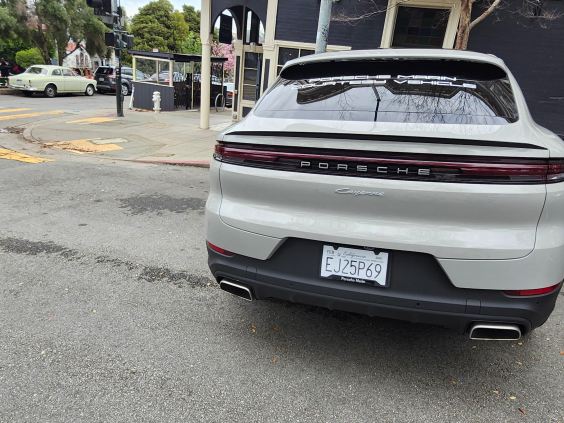In a damning report assessing Metro's contribution to the climate crisis, Metro found that its transit initiatives are inadequate to offset the significant increase in greenhouse gases resulting from Metro's own freeway expansion projects.
Though such a finding should not come as a surprise, the report, titled Climate Emissions Assessment: Metro’s Indirect Impact on Greenhouse Gas Emissions Report, represents a departure from past Metro spin that refused to link Metro highway expansion to increased emissions.
In 2020, Metro's then-construction-chief Richard Clarke stated, "most of our [highway] projects don’t affect vehicle miles traveled or greenhouse gas emissions because they’re focused on specific locations where congestion already exists." This sort of falsehood was often repeated by Metro's then-highway-chief Abdollah Ansari.
Metro often portrayed climate impacts as something outside the agency's purview. In 2020, for example, Metro's staff report blamed regional development for putting housing too far from jobs. And a November 2021 Metro staff report regarding Highway Program impacts noted that “GHG [greenhouse gas] production and reductions go beyond the assets Metro controls.”
These dubious rationalizations have enabled Metro to more than double its highway widening capital budget over the past two years.
Both Clarke and Ansari have since moved on.
New CEO Stephanie Wiggins has pledged to make climate among her top priorities. And today, Metro began to acknowledge how its freeway expansions harm the climate.
The report quantified the climate impacts of current Metro initiatives - bus and rail transit, active transportation, and road expansion ("new lane miles") - as well as a potential future congestion pricing initiative.
Metro includes two different methodologies for estimating how much additional driving (VMT - vehicle miles traveled) will result from the agency's planned road/freeway expansion. The low-end estimate comes from a relatively conservative Southern California Association of Governments model. The high-end estimate is from the UC Davis Induced Travel Demand Calculator.
Overall, through 2047, Metro transit and active transportation initiatives are expected to reduce GHG emissions by 2.7 million MTCO2e (Million Metric Tonnes CO2 equivalents).
Meanwhile, Metro road expansions would increase GHG emissions by 2.6 million to 10.1 million MTCO2e.
In responding to the staff findings, Metro boardmembers touched on several issues.
L.A. County Supervisor Hilda Solis commented that the adverse impacts of Metro's highway expansion went beyond the climate, noting Metro's plans to demolish neighborhoods along the 605 and 5 Freeways.
L.A. Mayor Eric Garcetti questioned whether the increased adoption of electric cars would reduce the GHG emission increases from Metro freeway expansion. Staff responded that projected electric car adoption levels had already been factored into the emission numbers. Garcetti requested a December 2022 report back on electrification and emissions. [Garcetti will leave the Metro board of directors in December, when his mayoral term ends.]
The climate emergency is already in evidence all around the world, including record-breaking temperatures across the U.S. last month and temperature alerts up and down California this week - plus drought, wildfires, eroding coastlines, and more. This crisis is real. Right now.
It is encouraging that Metro is finally acknowledging its own role in harming the climate. Next comes the harder step: taking action. As Streets for All founder Michael Schneider argued in an L.A. Times editorial this week, Metro needs to "stop investing in expanding highways" altogether. Hopefully today's report confirming Metro's contributions to emissions will shake Metro leadership into responding with the urgency this deserves. Soon it will be too late.






